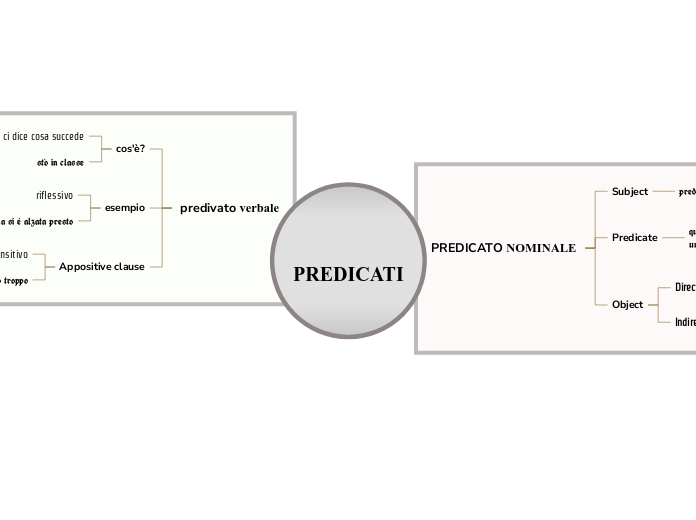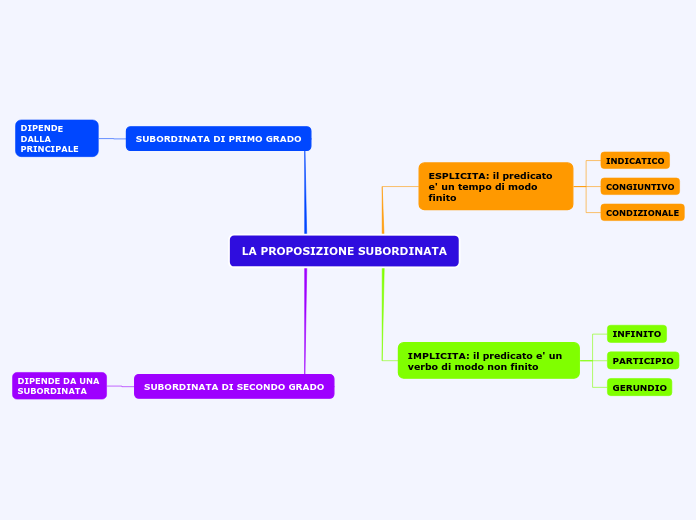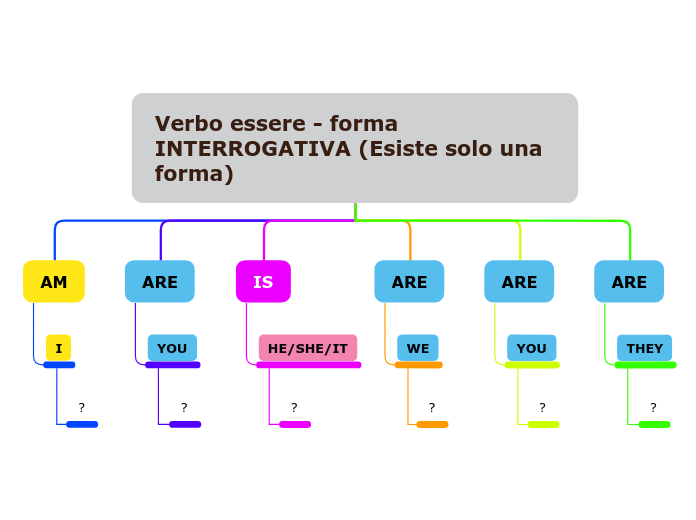PREDICATI
In linguistics, syntax is the set of rules, principles, and processes that govern the structure of sentences in a given language, usually including word order.
predivato verbale
A complex sentence is a sentence that contains an independent clause and one or more dependent clauses.
An independent clause can stand alone as a sentence, but a dependent clause even though it has a subject and a verb cannot stand alone.
Appositive clause
An appositive clause follows another noun or noun phrase in apposition to it; that is, it provides information that further identifies or defines it.
ho mangiato troppo
transitivo
esempio
The subject clause is a dependent clause that acts as a subject.
la mamma si è alzata presto
riflessivo
cos'è?
The object clause is a phrase on which a verb performs an action. It falls at the end of a sentence, and is governed by a verb or a preposition.
stò in classe
ci dice cosa succede
PREDICATO NOMINALE
Object
Traditional grammar defines the object in a sentence as the entity that is acted upon by the subject.
Indirect object
The indirect object identifies the person/thing for whom/which the action of the verb is performed.
The indirect object is usually a person or a thing.
il mio amicoè calciatore
Direct object
The direct object is the receiver of the action mentioned in the sentence.
il mio amico é simpatico
Predicate
The predicate of a sentence is the part that modifies the subject in some way. Because the subject is the person, place, or thing that a sentence is about, the predicate must contain a verb explaining what the subject does and can also include a modifier.
quando il verbo essere è seguito da un verbo o un'aggettivo
Subject
The subject of a sentence is the person, place, thing, or idea that is doing or being something. You can find the subject of a sentence if you can find the verb.
Ask the question, 'Who or what 'verbs' or 'verbed'?' and the answer to that question is the subject.
predicato nominale







